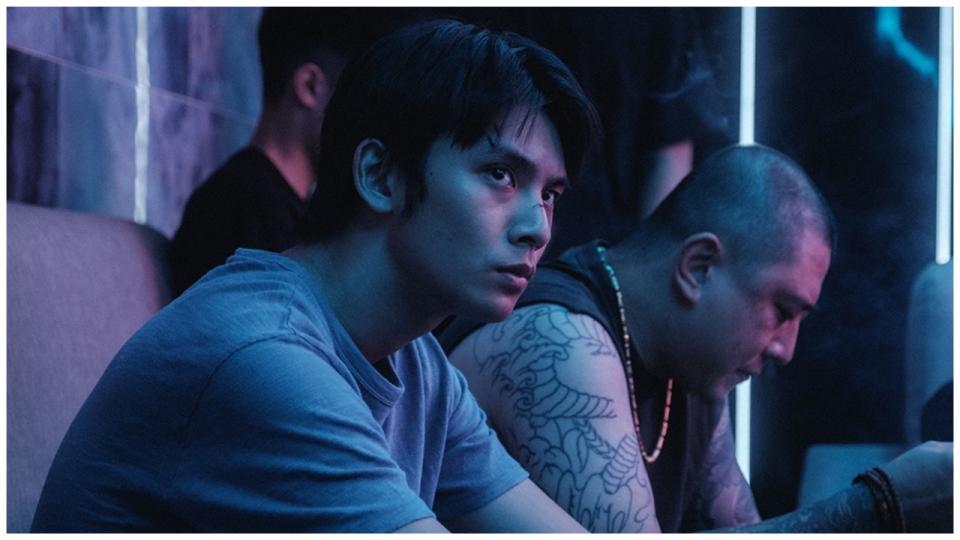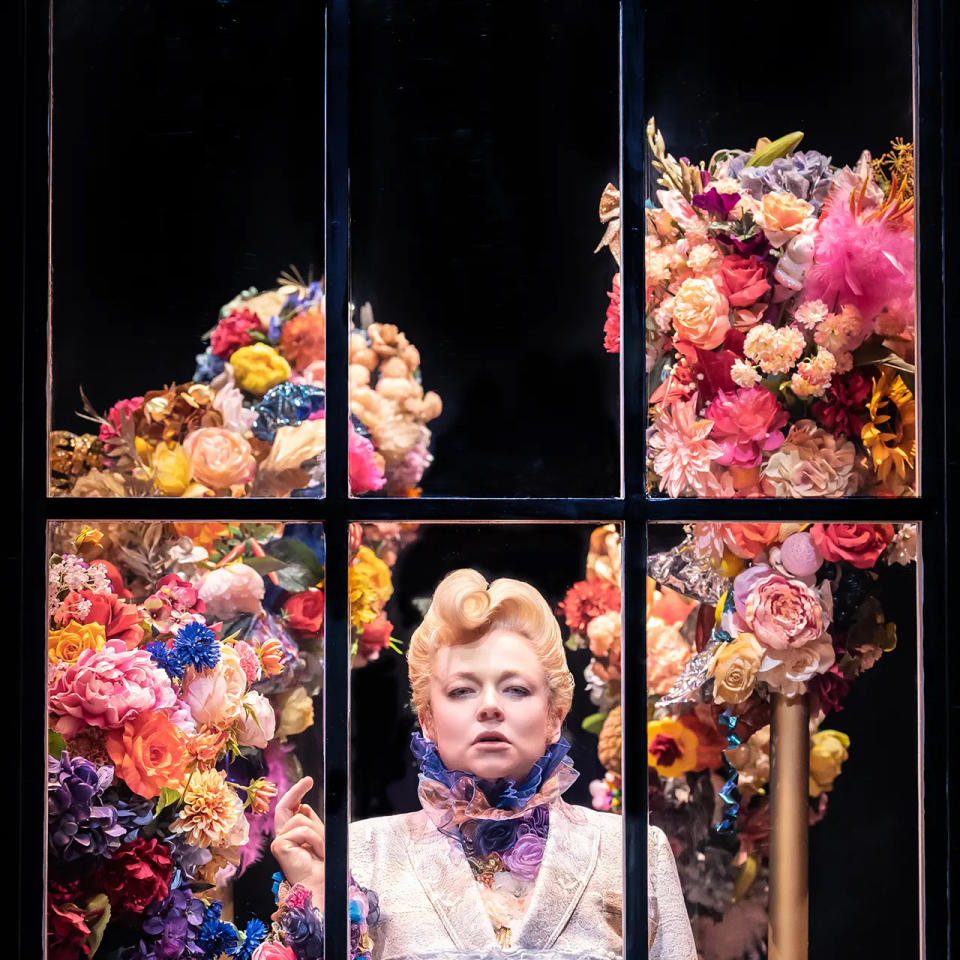Kindred Spirit’s Anita Gou Talks Cannes Title ‘Locust’, Reimagining Ang Lee’s Classic ‘The Wedding Banquet’ & Why Company Invested In ‘The Picture Of Dorian Gray’ Theatre Production With Sarah Snook

Anita Gou is no stranger to the festival circuit. Her L.A.-based Kindred Spirit banner saw a raft of its first projects debut at Sundance (think Lulu Wang’s Mandarin-language comedy The Farewell, which made $23M worldwide, Shia LaBeouf-starrer Honey Boy and Sam Levinson’s Assassination Nation) but, more recently, her co-production Silent Twins was selected in Un Certain Regard in 2022, while Dominic Savage’s Close To You premiered in Toronto last year. The company’s Mubi-acquired doc The Last Year of Darkness, which explores the lives of alternative Chinese youth, was awarded a Special Mention prize in the Next:Wave section at the Copenhagen International Documentary Film Festival last year.
This year, the producer, who has roots in Taiwan, was back in Cannes with Locust, the debut feature from Taiwanese-American filmmaker KEFF, which played in Cannes Critics’ Week. The project is set during the 2019 Hong Kong protests and follows Zhong-Han, a silent twenty-something in Taiwan who leads a double life. By day, he works at his family restaurant and by night he runs with a group of local gangsters. But when the ownership of the restaurant changes hands, it sets off an unexpected chain reaction that forces Zhong-Han to witness and confront the corrupt power games of his country.
More from Deadline
For Gou, this project which is structured as a Taiwan-U.S.-France-Qatar co-production, is “perfect example” of how the company is looking to grow its international slate through its investment in first-time filmmakers and international partnerships.
“We’ve evolved to a place that covers both sides of my personal inclinations as well as responding to how the global market has evolved,” she says. “I’m happy we have the know-how, resources and relationships that allow us to be able to have one foot in both doors.”
Founded in 2016 (before a rebrand and rename in 2018), Kindred Spirit initially started out as a financier but “very quickly” grew into a financier and producer by Gou “finding projects that allowed the company to wear both hats.”
“As we have evolved, we have become more specific in the projects that we get involved with as a financier,” she says. “Across the board, we would always have a producer’s role in some way, but we are a small outfit, and we rely very much on having good partners to work with, particularly in this kind of healthy ecosystem of independent producers. On every project, we look at ways of how we add value to a project, and it might not always be led by the financing aspect of it.”
The company has been making a conscious decision to have a balance of U.S.-focused projects and international projects. On the former side, it recently announced a reimagining of Ang Lee’s The Wedding Banquet with Lily Gladstone (more on that later) and, on the latter side, says Gou, Locust is a good example of this intention to bring to light international projects with underrepresented talent. “Locust was one film where it felt like it had so much more potential to be put together through an international cohort of financiers, partners, producers and sales agents.”

The neo-noir title, which stars Wei Chen Liu and Rimong Ihwar, is produced by Gou and Siuloku O. MK2 Films is repping worldwide sales for the project and is co-producing through its production banner MK Productions. Tandem has already boarded for French distribution. It was the first Taiwanese film to receive production support from Aide aux Cinemas du Monde in France and also the first Taiwanese project to receive a post-production grant from the Doha Film Institute.
It’s one of a slew of Taiwanese films that has been recognized in the Cannes selection this year, with projects such as Taiwan-set mountain drama Mongrel featuring in Directors’ Fortnight and Taiwanese co-production The Shameless playing in Un Certain Regard.
“I think that just even being able to use this opportunity to insert Taiwan into people’s minds and create that legacy is wonderful,” she says. “Being a participant in the global industry, I think there’s a real moment of opportunity for Taiwan because we do have this long legacy of being a powerhouse in Mandarin-speaking worlds both in terms of who we are and our country but also the ways we contribute to media.”
She adds: “It’s about thinking how we serve the Mandarin-speaking world beyond the Chinese market and how we bring that culture and that language to an audience outside of that diaspora.”
Coming from a family of leading Taiwanese tech entrepreneurs, Gou’s uncles (billionaire tycoon and founder of Foxconn Terry Gou and Tai-Chaing Gou) bought a majority stake in Taiwan’s oldest film studio Central Motion Picture Corporation in 2006. With that, it acquired a library of titles from the studio – which dates back to the 1960s -, including past works from major Taiwanese directors such as Lee and Hou Hsiao-Hsien. For Anita Gou, she says she has always felt a strong drive to “protect this library.”
“I’m a film nerd and a cinephile at heart,” she says. “That is truly the only reason I’m here doing any of this. I’m a guardian of this treasure and I really revere the works and I’m just excited that it’s part of our cultural legacy, so I really wanted to make sure that it was treated right in conversations around the world and how we find new opportunities for the studio to engage with the international industry.”
Lee’s 1993 classic The Wedding Banquet was one IP that jumped out at Gou. “It’s a certified classic,” she says, and adds she was keen to explore a different perspective on this project that is more than three decades old.
After approaching the original films’ co-writer and producer James Schamus to gauge the possibility of a remake – “he was so generous and gracious and really excited about it” –, they have since tapped Killers of the Flower Moon star Gladstone and SNL’s Bowen Yang to star in a reimagining of the classic romance. Fire Island’s Andrew Ahn is set to direct with Schamus and Joe Pirro producing for Symbolic Exchange alongside Gou and Caroline Clarke for Kindred Spirit. Bleecker Street and ShivHans Pictures have already co-acquired North American rights and are slated to release the project in theatres next year.

This version will follow Min whose boyfriend rejects his spontaneous marriage proposal, so he convinces his best friend Angela to marry him instead, paying for her partner Liz’s IVF treatments in exchange for his green card. Their plans for a subtle city hall elopement are turned upside down when Min’s grandmother makes a surprise trip from Seoul to throw them an extravagant Korean wedding banquet.
“We are focusing this more on the younger generation this time rather than focusing just on the generational and cultural divide because the original did that so perfectly,” says Gou of the reimagining. She notes that a lot of projects about the Asian diaspora (The Farewell included) focus “a lot on generational divide.”
“What we’re excited about is the next step in the evolution – how do we further the conversation? That’s been our north star in terms of how we are doing this adaptation.”
Kindred Spirit is also coming off the back of investing in its first theatre project with the one-woman stage adaptation of The Picture of Dorian Grey, starring Sarah Snook, which largely played to critical acclaim when it ran on London’s West End this year. Snook signed on for a 2025 Broadway run of the play earlier this month.
The project, says Gou, embodied “a lot of things” that the company looks for when it comes to selecting its film projects.
“Inside it’s engaging but it’s quite singular in terms of its expression,” she says. “It also dares to push boundaries and innovate. It’s just a very innovative show instead of something that is more traditional, and that is what we are always drawn to, so it felt like a good first foray into this space and hopefully won’t be our only one.”
Moving forward, Gou says the company will make a “concentrated effort” to be “more invested in development. “We have the resources to be able to option material and commissioning scripts and backing filmmakers that are pursuing material is very crucial to us and a big part of what we want to do more of these days.”
She adds: “It’s a very risk averse time in the industry and everybody at every level is feeling that. We are cautious in our approach to survive but we don’t want to lose both our ability and our intention to always take risks. So much of our DNA is working with early career filmmakers and we’ll continue to expand beyond that.”
Best of Deadline
Berlin Film Festival 2024: Award Ceremony, Film Premieres & Red Carpet Gallery
Sundance Film Festival 2024 Photos: Award Ceremony, Film Premieres & Parties Gallery
Sundance Film Festival U.S. Dramatic Grand Jury Prize Winners Through The Years - Photo Gallery
Sign up for Deadline's Newsletter. For the latest news, follow us on Facebook, Twitter, and Instagram.


